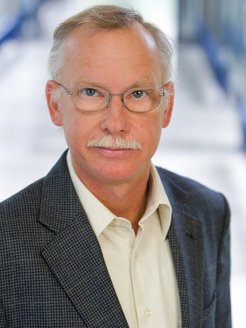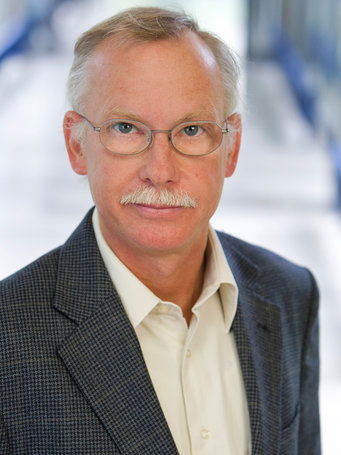E.B. Wilson Medal for F.-Ulrich Hartl
F.-Ulrich Hartl, director at the Max Planck Institute of Biochemistry in Martinsried, is awarded the E.B. Wilson Medal this year together with Arthur L. Horwich of Yale School of Medicine/HHMI. The award represents the highest honor of the American Society of Cell Biology (ASCB). The biochemist Hartl and the geneticist Horwich are pioneers in the field of cellular protein chemistry. Their collaboration helped unravel the molecular machinery that assists protein folding. Hartl and Horwich challenged the widely held notion put forth by Nobel Prize winner Christian Anfinsen that proteins fold spontaneously in cells, just as they do in test tubes. The prize will be awarded on December 5 on the ASCB/EMBO meeting Philadelphia, USA. Hartl has been a member of ASCB since 2004, Horwich since 1991.

Proteins, small molecular machines within each cell take over a variety of tasks. Newly produced immature chain-like proteins have to fold into a specific, three-dimensional structure. Against the established opinion, F.-Ulrich Hartl and Arthur L. Horwich proved in the eighties that proteins do not fold spontaneously. Rather, they need assistantance in their folding process by so-called Molecular Chaperones.
The scientists discovered, that certain Chaperones are cage-like ‘folding machines’. They offer newly produced proteins a protected environment, allowing them to fold to their correct functional structure. Misfolded proteins are one of the main causes of severe neurodegenerative disorders such as Huntington's disease, Alzheimer’s disease or Parkinsons’s disease. Furthermore, protein misfolding plays an essential role in aging.
About F.-Ulrich Hartl
Ulrich Hartl was born in 1957. He studied Medicine at the University of Heidelberg, where he afterwards gained his PhD. Hartl joined Walter Neupert’s research group at LMU as a postdoc and then became a group leader in Neupert’s department. A fellowship from the German Research Foundation (DFG) enabled him to undertake research at the University of California, Los Angeles. He did research as professor and Howard Hughes Medical Investigator at the Sloan Kettering Institute and at Cornell University in New York, USA. In 1997, the Max Planck Society succeeded in enticing the renowned scientist back to Germany. Since then, he is Director and head of the Department of Cellular Biochemistry at the Max Planck Institute of Biochemistry. Within the last years he was honored with multiple scientific prizes including 2002 the Gottfried Wilhelm Leibniz Prize, 2011 the Albert Lasker Award for Basic Medical Research, 2012 the Shaw Prize together with Horwich and 2016 the Albany Medical Center-Prize together with Horwich and Susan Lee Lindquist.
You find the Press release of the American Society of Cell Biology here.












